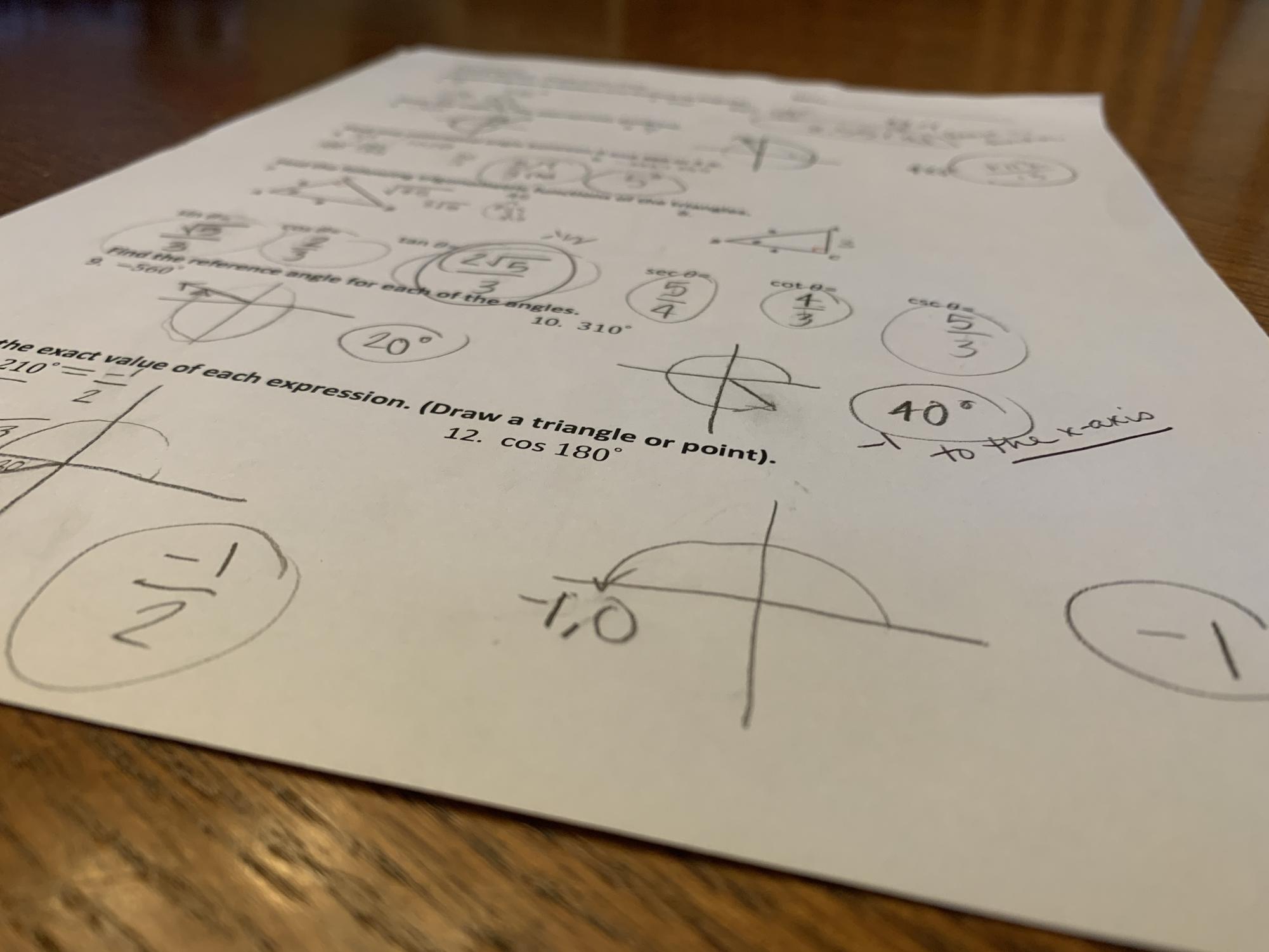
Your heart beats out of your chest as your teacher slowly passes out the completed tests. When it finally reaches your table, your stomach drops as a Beginning stares up at you. In the past, this would have been the end of the world, but now, you don’t need to fret. You currently have access to the best school resources: reassessments.
If I even as much as mention reassessments around my parents, I am met with the same old argument. When I was a kid, if you failed a test, you just accepted your grade and moved on. After the inevitable eye roll, I always wonder, maybe school has gotten too easy. Maybe reassessments are making kids lazy. While a valid argument can be made for each of these points, the fact still stands that school is for learning. If we have shown during a test that we are uninformed on a subject, it is reasonable to use that as a motivating factor to improve our understanding and ultimately, our grades. We attend school not to give up when faced with challenges, but to acquire the same core knowledge and skills as our fellow students.
Junior Megan Weiland uses this unique opportunity the most in her chemistry class.
“I get things mixed around quite a bit. I don’t take reassessments just to get a higher grade. I take them because I didn’t know the knowledge before. Relearning things and then reassessing them helps me be more secure with that knowledge.”
Macy White, a sophomore, believes that reassessments are helpful to her, especially in math.
“I actually understand what we’ve been learning after I do the reassessment.”
If schools continue teaching a subject without ensuring that students have understood it, they may get lost in later units if the subject builds on itself. This discourages students and makes it seem like giving up is the right thing to do when they encounter a challenge.
Not only do reassessments allow you to learn things you may have missed, but they are also an extremely efficient way to decrease the stress prevalent in many high schoolers. According to the Youth Truth Survey, only 55% of high schoolers feel happy about their life while 56% of the students surveyed said that anxiety and depression impacted their ability to learn. The stress levels of students today are extremely high, which in turn, affects their grades. Therefore, it makes perfect sense to allow students to relieve some of their stress with the knowledge that their first grade is not permanent. Reassessments also account for the fact that some students may not perform well on their first test not because of a lack of knowledge, but because their learning is being impacted by external factors such as stress.
Many people believe that reassessments can be harmful because they are not allowed later in life, but this is not always the case. Salesmen don’t just quit if they can’t sell a product on the first try. Architects don’t call it a day if their design is lacking. 35% of current drivers wouldn’t be allowed to drive if they just gave up after failing their driver’s permit test once.
Some students worry about the lack of reassessments in college, but Weiland believes that it’s important to take advantage of them while still in high school.
“In the future when I go to college, I won’t have that reassessment opportunity, but during high school, I want to take advantage of it so I can get good grades.”
While some people may view reassessments as a negative thing, the solution to this problem is simple: allow reassessments in all educational settings, including college. With reassessments being readily available everywhere else in life, why not incorporate them into education as well? The knowledge, peace of mind, and perseverance students experience through this second chance at a test proves that reassessments are not the evil that older generations may think.
Reassessments are a controversial topic among educators, parents, and students in the school system. Whether or not they should be allowed is commonly argued and something that many people have opinions on. Some say they make tests less stressful on students and that they give a second chance to kids who didn’t accurately demonstrate their learning on the first go around. Others think having reassessments encourages procrastination or believe the stress that a test without reassessments promotes is beneficial in the long run. I think they are a bad thing for school systems because the school shouldn’t be required to help a student who didn’t help themselves, reassessments allow students to memorize test answers rather than learn the material, and it doesn’t properly prepare students for college.
In high school, the day before a test is normally spent working on a study guide and reviewing for a test. Students are encouraged to help themselves before the test by studying the information they have been learning in the last chapter. Students are given plenty of time in class, with a possible 10-15 minute review before class the day of the test, to get a good score on the assessment. The only reason a student would score something they aren’t happy with is if they weren’t responsible for their time. If they didn’t focus on reviewing for the class test, they would need to reassess. But if that is the only way a reassessment is necessary, should it even be allowed? If someone doesn’t do the things needed to get a good score, it shouldn’t be on the school to bail out the student by holding a reassessment for them. If a student doesn’t want to put in the time to help themselves get a good score on a test, the school shouldn’t have to spend time to help them fix their grade.
Even if the student should be given a second chance, it gives them an advantage over those who only take the test once. On test day, the questions on the test are unknown. Students come into the test with the knowledge of the subject, but without knowing what the specific questions will be. For someone taking a reassessment, however, that is not the case. The student knows what the test will hold, which gives them a leg up towards getting a good score. If the student knows what questions they will be asked on the test, it allows them to memorize the answers for the test rather than relearn the course material. This may be beneficial for the individual in the short-term but will hinder them in the long term because they won’t have fully understood the learning.
In high school, students can and do rely on reassessments but as soon as they go to college, retesting goes away. In college, it’s a one-and-done opportunity on every test, and not having the same system in high school only makes college tests more stressful once a person reaches that point. At the end of every year of high school, my teachers have always said they are trying to prepare us for college and the workforce, but how can they do so effectively if we aren’t following the same testing system? I’m not saying we need to make high school just like college, but we should make it as close as possible. If there are no re-dos in college and no re-tries in adulthood, then we shouldn’t have them now. It sets high schoolers up to not fully prepare for a test because we’ve always had retesting opportunities. Not being prepared for college testing sets us up for harder times in already hard times.
While college can set us up for life, high school should set us up for college. Reassessments should not be allowed at the high school level, even though they may help people get better grades. By having reassessments, it allows worse students to get higher grades, which makes it harder to determine how well a student is doing in school. Reassessments might seem like a positive, but all it does is lie to a student. It makes them think they can go through college the same way, but they can’t. It makes them think they don’t need to study, but they do. Retesting is in no way good for high schoolers, and keeping them in place only sets kids up for failure later in life. Change must be made in the school systems, and if things don’t change soon, the consequences of reassessments will become more and more clear.







